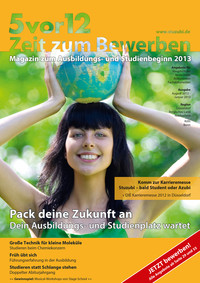 W
W5vor12 is a biannual German magazine distributed free to schools. In addition to advertisements for companies and institutions to present their vacancies, advice on application and interviews are included. The medium is supported by educational institutions in Germany. The idea for the concept came in 1993. Then it was first published the same year. There are now twelve regional editions nationwide in Germany, each of which appear in metropolitan areas in schools.
 W
WAl-Muqtaṭaf was an Arabic journal of popular science. The journal was published monthly from 1876 to 1952 in Beirut and Cairo with a total of 121 issues. Along with Al-Manar and Al-Hilal, it was one of the Arab world's three most popular journals in the early 20th century.
 W
WAquila is a monthly UK-based educational children's magazine that offers an alternative to mainstream publications. It is for boys and girls of 8-13 and features puzzles, fun facts and activities - and is advert-free. Each issue revolves mainly around a specific topic, for example Captain Cook, Science Special, The Equator and Medieval Times - all covered in 2013.
 W
WThe Big Picture series provides teachers and post-16 students with up-to-date information on research findings in biology and medicine, and the social and ethical implications of this research. Published by the Wellcome Trust as a free educational resource, each issue is available for free electronically. The website provides free resources for teachers and online activities for students, including lesson ideas, animations, image galleries and short videos. As of 2016, the print subscription has been discontinued and replaced with online only.
 W
WBook Links is a quarterly magazine and is the supplement of another magazine Booklist, which are based in Chicago.
 W
WChagurin (ちゃぐりん) is a children's magazine published by the "Family Light Association" in Japan. The magazine was formerly published under the title Children's Light.
 W
WChildren & Young People Now is a magazine and website resource covering policy issues and best practice for all professionals working to improve the life chances of children, young people and families in the United Kingdom.
 W
WThe Chollima is a monthly educational magazine of the Democratic People's Republic of Korea. It was first published in January 1959, initially to support the Chollima Movement. The publisher is the Chollima Editing Committee of the Art and Literature Publishing House. Unlike most other magazines in the country, it is targeted at the general public.
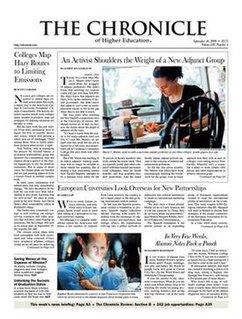 W
WThe Chronicle of Higher Education is a newspaper and website that presents news, information, and jobs for college and university faculty and student affairs professionals. A subscription is required to read some articles.
 W
WDelta is a monthly, popular science magazine published by the University of Warsaw in cooperation with:The Polish Mathematical Society, The Polish Physical Society, The Polish Astronomical Society, The Polish Information Processing Society.
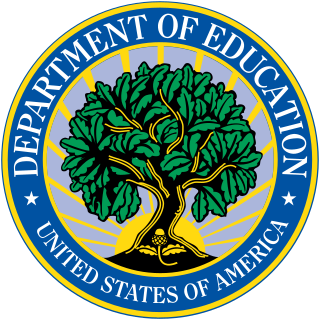 W
WEducation Week is an independent news organization that has covered K–12 education since 1981. It is known for providing both news and analysis, along with explanatory and investigative journalism across a range of digital, print, and broadcast platforms as well as through live and virtual events. It is owned by Editorial Projects in Education (EPE), a nonprofit organization, whose mission is to raise awareness and understanding of critical issues facing American schools. It is headquartered in Bethesda, Maryland in Greater Washington DC.
 W
WGamest was a Japanese video game magazine that specialized in covering arcade games. Published by Shinseisha, it first began in May 1986 and originally published bi-monthly, later changed to be a monthly-issued magazine in the late 1980s. The magazine also featured the annual "Gamest Awards", which hands out awards to games based on user vote. The magazine had a heavy-focus on shoot 'em up arcade games, but would also cover games from other genres. Gamest originated from the bi-monthly fanzine VG2 Newsletter from the early 1980s. The magazine ran for several years, with its final issue being released in September 1999. Following the bankruptcy of publisher Shinseisha, many editors would move to ASCII and create a successor magazine, Monthly Arcadia.
 W
WGEO is a family of educational monthly magazines similar to the National Geographic magazine. It is known for its detailed reports and pictures.
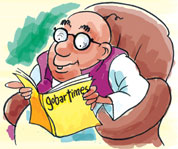 W
WGobar Times is a monthly environmental education magazine for the young adult, published by the Centre for Science and Environment. It is published along with Down to Earth as a supplement. The magazine was first published in May, 1998 and has widespread circulation across India and abroad. The icon of the magazine, Pandit Gobar Ganesh, the pondering panditji is an Indian elderly who takes the reader through current issues, subjects and ideas relating to the environment. He is the icon whose brains can be picked for anything on earth. The current editor of the magazine is Sorit Gupto.
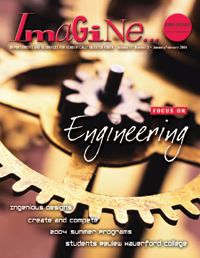 W
WImagine is a defunct educational periodical for 7th-12th graders that was published by the Center for Talented Youth (CTY) at Johns Hopkins University. It is intended to provide intellectual stimulus for students looking toward their college years. Each issue focuses on an academic theme such as engineering, social sciences, archaeology, or robotics, that a younger student might not be exposed to in the course of primary or secondary education. The magazine also features, among other things, student-written articles about summer and extracurricular activities, reviews of selective colleges, book reviews, interviews with accomplished people, puzzles, college planning advice, and career options information. Contests for Imagine readers were held at times, with topics ranging from essay competitions to photo contests. In 2004, 2005, 2006 and 2007 Imagine was awarded the Parents' Choice Gold Award for magazines. The editor was Melissa Hartman of Johns Hopkins University, CTY.
 W
WInside Higher Ed is a media company and online publication that provides news, opinion, resources, events and jobs focused on college and university topics. Quad Partners has a controlling interest in the publication.
 W
WThe Journal of Singing is the peer-reviewed journal sponsored and published by the National Association of Teachers of Singing (NATS). Published five times a year, the journal provides current information regarding the teaching of singing as well as results of recent research in the field. A refereed journal, it serves as a historical record and is a venue for teachers of singing and other scholars to share the results of their work in areas such as history, diction, voice science, medicine, and especially voice pedagogy. The journal was formerly known as the NATS Bulletin. Access to archived articles is only through NATS membership.
 W
WKids Discover is an educational publisher that produces high-interest nonfiction reading for children ages 6–14. The company was founded by Mark Levine in 1991, and is family owned and operated. Ted Levine serves as the company's President and CEO.
 W
WKnowledge was a British weekly educational magazine for children which was assembled in blue binders into an encyclopedia.
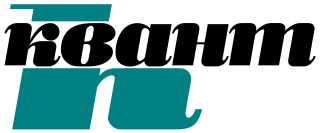 W
WKvant is a popular science magazine in physics and mathematics for school students and teachers, issued in print between 1970 and 2011. The magazine became an online-only publication in 2011. Translation of selected articles from Kvant had been published in Quantum Magazine in 1990–2001, which in turn had been translated and published in Greece in 1994–2001.
 W
WFirst published in 1997, Language Magazine is the popular periodical of language, education and communication. In 2001, Language Magazine increased its publication schedule from 6 to 12 issues a year to answer the demand of readers to be kept up to date with developments in the fast paced world of language and literacy education.
 W
WLook and Learn was a British weekly educational magazine for children published by Fleetway Publications Ltd from 1962 until 1982. It contained educational text articles that covered a wide variety of topics from volcanoes to the Loch Ness Monster; a long running science fiction comic strip, The Trigan Empire; adaptations of famous works of literature into comic-strip form, such as Lorna Doone; and serialized works of fiction such as The First Men in the Moon.
 W
WLa mère éducatrice was a feminist anarchist magazine founded by Madeleine Vernet. The magazine was first published in October 1917. The headquarters was in Levallois-Perret. Madeleine Vernet also edited the magazine. The magazine adopted a pacifist, socialist and educative stance. It existed until 1939.
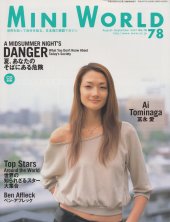 W
WMini World was an English-language Japanese magazine which ran from 1988 to 2001. The magazine had a vocabulary level of 2,000 words, equivalent to English standards of the third year of Middle School in Japan.
 W
WPratiyogita Darpan is an Indian bi-lingual magazine on current affairs and general knowledge specially useful for civil service exams and similar competitive exams.
 W
WPrimary Times is a free family magazine which is distributed to schools in the United Kingdom and Ireland. The magazine was started in 1989 and aims to inform parents and carers of primary school age children about current forthcoming events, courses and attractions, and community activities. . It's published as 61 separate magazines in the UK and Ireland, with a combined distribution of 2.7 million copies per issue.
 W
WRadical Teacher is a socialist, feminist, and anti-racist peer-reviewed academic journal dedicated to the theory and practice of education. The journal examines the root causes of inequality and promotes progressive social change in the field of education. It serves the community of educators at all levels of education who are working for democratic process, peace and justice.
 W
WSagħtar is a Maltese magazine published by the Malta Union of Teachers. It is published monthly during the school year, and is intended mainly for use within Maltese primary and secondary schools. Its content ranges from information regarding current local and international topics, to Maltese literature. In Maltese sagħtar refers to wild thyme, and also to the striated pardalote.
 W
WSahifat Dar al-Ulum was an Arabic journal published in Cairo from 1934 to 1947. It was founded by Sayyid Qutb (1905-1966), a well-known Egyptian writer, poet, and critic, who is considered to be one of the Muslim Brotherhoodʼs most important thought leaders, as well as Saʿd al-Labban and Muhammad Ibrahim Jabr. After training as a teacher, Qutb graduated from the Dār al-ʿUlūm University in Cairo during the founding year of the journal. In terms of content, the editors focused on the “latest pedagogical, social and linguistic theories” and pursued the goal to compete with the reputation of al-Azhar and the Egyptian University through their intellectual Islamic orientation and their high demands on the students. In addition to Saḥīfat Dār-al-ʿUlūm, Qutb also published his articles in other journals of various ideological orientations, including ar-Risala and aš-Šuʼūn al-iğtimāʿīya.
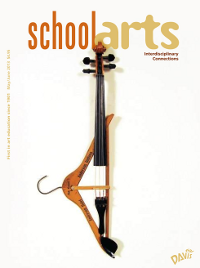 W
W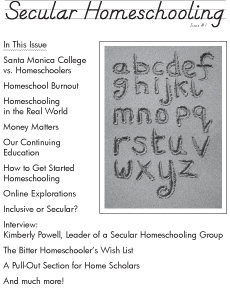 W
WSecular Homeschooling was an American magazine for people who homeschool for reasons other than religion. It began as a quarterly, but became a bimonthly in July 2009. The magazine is no longer published and the final issue was released in 2011.
 W
WStudy South Africa is an annual publication of the International Education Association of South Africa (IEASA) in association with Universities South Africa (USAf), and serves as a guide to higher education in South Africa. Study South Africa is also known as Study South Africa: the guide to South African Higher Education.
 W
WThe Persian Tarbiyat was the first non-governmental newspaper in Iran. It was founded in Teheran by Mirza Mohammad Hosseyn Foroughi, also known as Zaka-al Molk, in 1896 and was published until 1907. For Foroughi, who was a poet and also worked as a translator for Naser al-Din Shah, the acquisition of modern sciences was of decisive importance for the development of the country and its society. Contrary to the common perception of traditional education and science, he wanted to contribute to the modernisation of the Iranian society by publishing this journal. The publication history of the nine years with a total of 434 issues varied between daily, weekly and monthly publications. The articles deal with topics such as history and geography but also with medical and other scientific subjects. Particularly due to its literary focus and the publication of numerous translations the journal was a literary pioneer of that time.
 W
WTeenage Survival is an English-language magazine published annually by Regional Maple Leaf Communications Inc. It was first published in 1990 and is aimed at young teens. It deals with issues pertaining to puberty and growing up. Some schools in US and Canada use the book as an extra curriculum activity. The Teenage Survival Handbook has been endorsed by RCMP Foundation since 1999 and was formerly illustrated by Ben Wicks from 1996 - 2000. After his death, RMC created "The Ben Wicks Award" in his honor and each year, up-and coming artists from Canada and the US entered the contest for a chance to win the right to illustrate the book and collect the $10,000 prize.
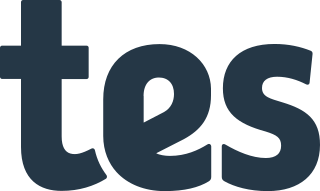 W
WTes, formerly known as the Times Educational Supplement, is a weekly UK publication aimed at education professionals. It was first published in 1910 as a pull-out supplement in The Times newspaper. Such was its popularity that in 1914, the supplement became a separate publication selling for one penny.
 W
WThis Magazine is an independent alternative Canadian political magazine.
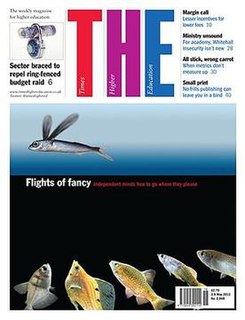 W
WTimes Higher Education (THE), formerly The Times Higher Education Supplement (THES), is a magazine supplement reporting specifically on news and issues related to higher education.
 W
WA wall magazine is a periodical run on a notice board, especially in an educational institute where the students and other members of the institution can post their articles, poems, drawings and other such compositions to share with each other. They can be in the form of collage giving a message.